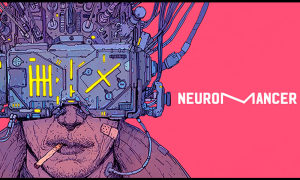 Back in 2009, I covered Taiwan’s CompuText show, alongside my son, then 18.
Back in 2009, I covered Taiwan’s CompuText show, alongside my son, then 18.
We spent four days wandering the halls, on the hunt for “desktop Linux.” We eventually found Linux Foundation head Jim Zemlin addressing a small group in a corner of Taiwan 101, the city’s tallest building, miles from the show’s main hall. It’s become something of a joke between us since then.
The point is there was no desktop Linux. You can argue that Google Android is Linux, or that the Mac OS is based on a Linux, but these aren’t truly open systems. Linux is, and was, primarily a server technology.
This is important to note when thinking about Web 3.0, or the Metaverse, as the buzzword advocates call it. They say it’s the biggest thing since the Web was spun, nearly 3 decades ago. It’s certainly the biggest thing since the Cloud, which Amazon began selling 15 years ago.
 The Internet, and the Cloud, are server technologies. They use open source, and open platforms, to lower costs. They have huge pyramids of code. The more eyes that are on it, the better the code can be, and the higher it can climb.
The Internet, and the Cloud, are server technologies. They use open source, and open platforms, to lower costs. They have huge pyramids of code. The more eyes that are on it, the better the code can be, and the higher it can climb.
The Metaverse is a client technology. The artists formerly known as Facebook, now billed as Meta Platforms, plan to put $29-34 billion into capital spending next year. Most of that will go into client devices and software, to serve the new platform. We’re talking here about headsets and haptic gloves that deliver virtual worlds, services, and operating systems, immersive experiences that go straight into users’ heads.
They’re not alone. Roblox, Unity and Epic are turning their gaming engines into artificial reality operating systems. Block, formerly Square, Paypal, and others are looking to make their cryptocurrencies the de-facto coin of these new worlds. Microsoft wants to bring all this to the office, making homes work-and-feel like offices. Apple and Google will be heard from. So will the world’s entertainment conglomerates. And so on, and so forth.
 Notice anything in the preceding two paragraphs? Each one of these efforts is proprietary. They’re closed, not open. They’re the exact opposite of the Internet. At best, they’re less open than the Mac OS or Windows. At worst, they’re a rabbit hole from which the world will emerge into a new feudalism, under absolute rule from its tech overlords.
Notice anything in the preceding two paragraphs? Each one of these efforts is proprietary. They’re closed, not open. They’re the exact opposite of the Internet. At best, they’re less open than the Mac OS or Windows. At worst, they’re a rabbit hole from which the world will emerge into a new feudalism, under absolute rule from its tech overlords.
Here’s my Christmas message. It ain’t gonna happen like that. You can’t turn an atmosphere of distrust into one of trust, and an open world into a closed one, by simply throwing eye candy at it. The market won’t let you, and governments won’t let you. We have enough problems with the open Internet, from crooks and monopolists and surveillance states.
What the new world needs is governance. What the old tech world needs is also governance. That governance must be global, and enforceable, to be useful. It must also be open, and transparent, or it’s going to be rejected.
All the world’s problems today can be summed up the same way. Without global standards, uniformly applied, we can’t prevent climate catastrophe. We can’t control the world’s robber barons or do anything to prevent the next nuclear war.
Our kids are sleepwalking toward Armageddon, and Meta headsets won’t change that.








